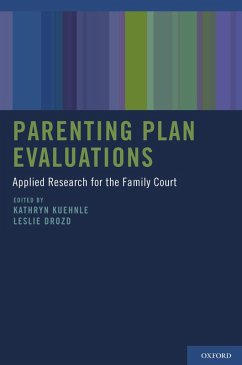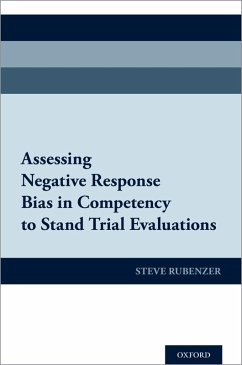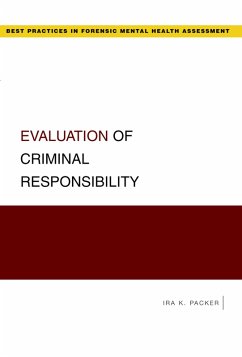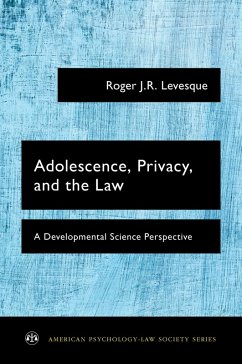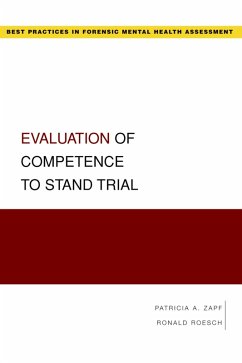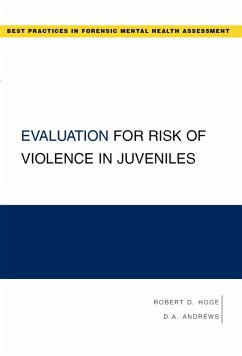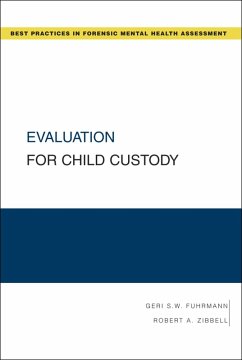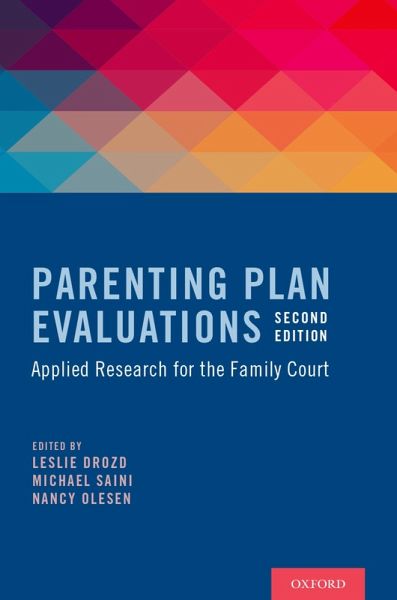
Parenting Plan Evaluations (eBook, PDF)
Applied Research for the Family Court
Redaktion: Drozd, Leslie; Olesen, Nancy; Saini, Michael
Versandkostenfrei!
Sofort per Download lieferbar
63,95 €
inkl. MwSt.
Weitere Ausgaben:

PAYBACK Punkte
32 °P sammeln!
More so than in any other form of forensic evaluation, mental health professionals who conduct parenting plan evaluations must have an understanding of the most current evidence in the areas of child development, optimal parenting plans across various populations, behavioral psychology, family violence, and legal issues to inform their opinions. In addition, family law judges and legal professionals require the best available evidence to support their decisions and positions. Parenting Plan Evaluations has become the go-to source for the most current empirical evidence in the field of child cu...
More so than in any other form of forensic evaluation, mental health professionals who conduct parenting plan evaluations must have an understanding of the most current evidence in the areas of child development, optimal parenting plans across various populations, behavioral psychology, family violence, and legal issues to inform their opinions. In addition, family law judges and legal professionals require the best available evidence to support their decisions and positions. Parenting Plan Evaluations has become the go-to source for the most current empirical evidence in the field of child custody disputes. Fully updated in this Second Edition, the volume continues its focus on translating and implementing research associated with the most important topics within the family court. It presents an organized and in-depth analysis of the latest research and offers specific recommendations for applying these findings to the issues in child custody disputes. Written by international experts in the field, chapters cover the most important and complex issues that arise in family court, such as attachment and overnight timesharing with very young children, co-parenting children with chronic medical conditions and developmental disorders, domestic violence during separation and divorce, alienation, gay and lesbian co-parents, and relocation, among others. This volume assists forensic mental health professionals to proffer empirically based opinions, conclusions, and recommendations and assists family law judges and attorneys in evaluating the reliability of the information provided to the courts by mental health professionals in their reports and testimony. Not just for forensic evaluators, Parenting Plan Evaluations is a must-read for legal practitioners, family law judges and attorneys, and other professionals seeking to understand more about the science behind parenting plan evaluations.
Dieser Download kann aus rechtlichen Gründen nur mit Rechnungsadresse in A, B, BG, CY, CZ, D, DK, EW, E, FIN, F, GR, HR, H, IRL, I, LT, L, LR, M, NL, PL, P, R, S, SLO, SK ausgeliefert werden.




